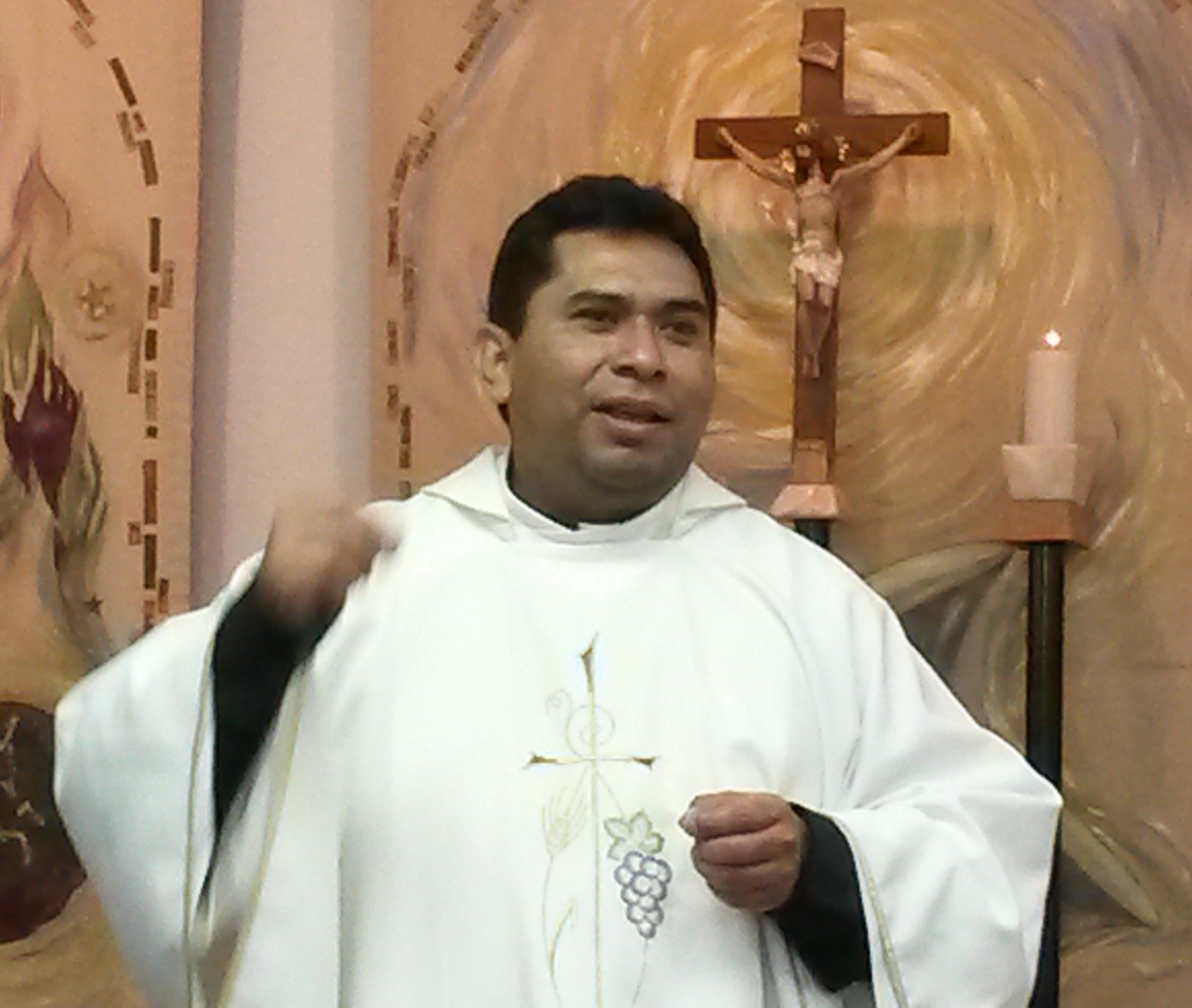 XVI SUNDAY IN ORDINARY TIME
XVI SUNDAY IN ORDINARY TIME
TAKING IN THE DIVINE PRESENCE
By our Pastor, Fr. Carmelo Jiménez
Once again I remind you of the messages of the last few Sundays to connect them with the message of this Sunday. God chooses us, God calls us, God sends us to announce his Kingdom, his Word and his Commandments, which should translate into an acceptance, a welcoming attitude, like that of Abraham, Martha and Mary. So to live a mature faith, according to Paul, supposes we put Jesus at the center of our lives, and surpass the separation between contemplation and Christian service. Because there is no authentic service that does not come from listening to the Word and there is no true intimacy with the Lord that is not witnessed in the commitment to welcome and accept our brothers and sisters.
In the story that we hear in the first reading, many theologians have tried to see the presence of the Trinity, but it’s not known with precision if that was the intention of the sacred writer. Nevertheless we could say with certainty that when it comes to Abraham, the author turns to the elements of the nomadic life in which everything revolves around the tent. The sense of hospitality stands out as is shown in the rest of the story and the recognition of someone sacred. We need to recuperate the sensitivity for the divine in our world and the sensitivity for service to others. Hospitality has practically disappeared among us. And here I’d like to emphasize the importance of the welcoming ministry at our celebrations. We need to recuperate this ministry and make all of our brothers and sisters feel at home.
In the Church there are many styles of consecrated life. With respect to religious sisters, the congregations can be divided into two large blocks: religious of active life and religious of contemplative life. The religious of active life are generally those that we know that work in many parishes, in many schools and even diocesan offices. We can identify them with Martha, who symbolizes or expresses giving of oneself entirely to service. The religious of contemplative life, on the other hand, we rarely know because they are usually in a cloistered life, so from the time they enter the convent they don’t leave except for a true necessity. They dedicate themselves to a life of prayer. In them is represented Mary, symbolizing the attitude of the disciple who listens attentively and contemplates. We could ask ourselves, which of these two lifestyles is better? But we cannot compare one style with the other and put one above the other because both styles need to have aspects of the other. And so the religious sisters of an active life need to pray a lot so that their work does not turn into just action without any spirituality. And the sisters of a contemplative life need to work in order to sustain themselves. In Martha and Mary we have also an example of welcome and acceptance, of receiving someone without caring about their race nor color.
A general and attentive reading of the gospel proves that Jesus himself knew how to harmonize these two realities and these two tasks: during the day he dedicated himself intensely to announcing the kingdom with his gestures and words; people looked for him and spent a long time by his side and they didn’t give him time and tranquility to even eat. But at the same time we read repeatedly in the gospel that he went away to the wilderness (during the night or even during the day) to be alone, to dedicate himself to prayer to God, in other words an intimate dialogue with Him.
Let us pray brothers and sisters to give thanks to God for choosing, calling and sending us. Let us ask for the grace of an open heart to accept and welcome all of our brothers and sisters, to know how to recognize the presence of God among us. May God give us the grace that in our hearts may live the spirit of Abraham, Martha and Mary; that we may transform our world with brotherhood and in prayer. Amen.